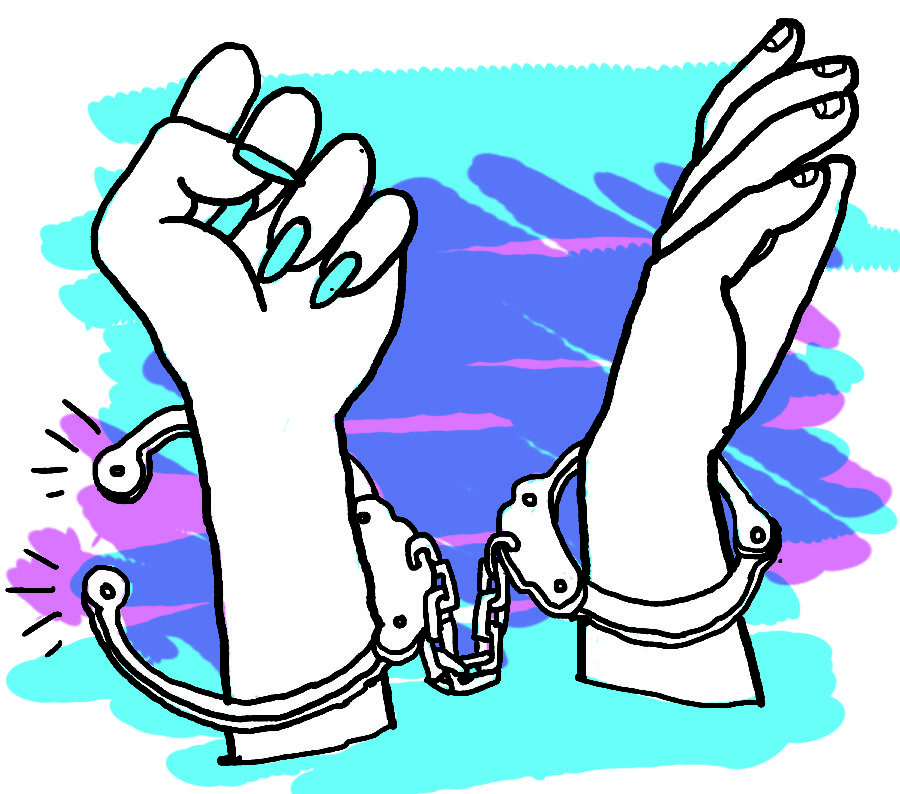In the era we live in, it’s important to continue on a path of progression rather than one of regression. It’s time to change gender roles and expectations so men no longer expect to get whatever they want from women simply because they’re men.
Women can’t be owned and we don’t owe men anything. However, traditional gender roles and traits have created a society where men exert authority over women and expect compliance and respect in return.
Traditionally, boys are taught to exhibit characteristics of strength, resilience and bravery while girls are socially expected to be docile, quiet and pleasant. For centuries, societies all over the world have catered to the notion that men and women are separate beings with distinctive qualities.
With old-fashioned upbringings come outdated views of gender roles. We should avoid preaching falsities like “boys don’t cry” and “he must like you if he teases you,” to children because it can lead to misconceptions of love and emotions later in life.
In recent decades, gender roles have been dismantled at a nuclear level. Many young families are striving to create gender-neutral upbringings for their children to not impose one ideal of upbringing over the other. Teaching children they don’t have to adhere to set standards of gender behavior is a step in the right direction that will hopefully continue throughout adulthood.
There are still a plethora of stereotypes that may never be broken. One is that men are superior to women, and because men are providers, they should be praised.
Because men have typically been in powerful positions throughout history, some people believe men hold a greater power over women and expect women to idolize and respect their male counterparts.
With this mindset, women are expected to respect male egos. Along with this comes an inherited sense of privilege.
Nevertheless, when a woman says “enough” and challenges a man, she is often berated for contesting his “supposed privilege.”
An example of women defending themselves from assumed male authority can be found in any woman’s catcalling story. If a woman is catcalled while walking down the street and decides to say something back to defend herself, she will often be met with scorn.
Comments like, “You’re not that pretty anyway,” may be thrown at any barrier she puts up in an effort to block unwanted attention. It’s common to experience immediate backlash after objecting to unwarranted comments because men do not expect to be denied.
In Spike Lee’s new Netflix series, “She’s Gotta Have It,” a strong, independent, black woman, Nola Darling, narrates her life in Brooklyn. In episode one, Nola is walking home alone on a dark street when a man catcalls her: “Hey sexy, what’s your name, girl?”
The man approaches her from behind and grabs her, saying, “Bitch, I’m trying to talk to you!” As she breaks from his grasp, he reassures her he’s just trying to talk to her. However, Nola beats his chest and tells him to get off of her. As she runs away, the man shouts, “Fuck you then! I don’t want that stank pussy anyway. Mother fucking black bitch!”
Once a woman stands up for herself, catcalling men are insulted because the authority they believe they have over women is challenged and weakened. It’s as if some men believe overt approaches that objectify their prey will yield successful encounters with women.
A woman would have said something back only out of her own defense and frustration for being oppressed for so long. However, simply ridiculing a man for street harassment can lead to more harassment with words like “bitch” hastily trailing sweet nothings of, “Smile for me baby.”
Microaggressions like catcalling are at the root of a much larger societal issue: rape culture.
The Stanford rapist, Brock Turner, is an exemplary case of men taking from women what they believe would be given willingly and getting away with it. It’s difficult to pinpoint why a rapist believes he is entitled to sex without consent, but it is even more difficult to explain the reasonings of judges who dole out soft sentences to rapists who are white, wealthy and educated.
Consistent affirmations breed men who function on praise, and once it is no longer flooding in, it will still be expected. In some instances, it is even forcibly obtained. This mentality leads to acts of violence against women who don’t give these men what believe they are owed.




